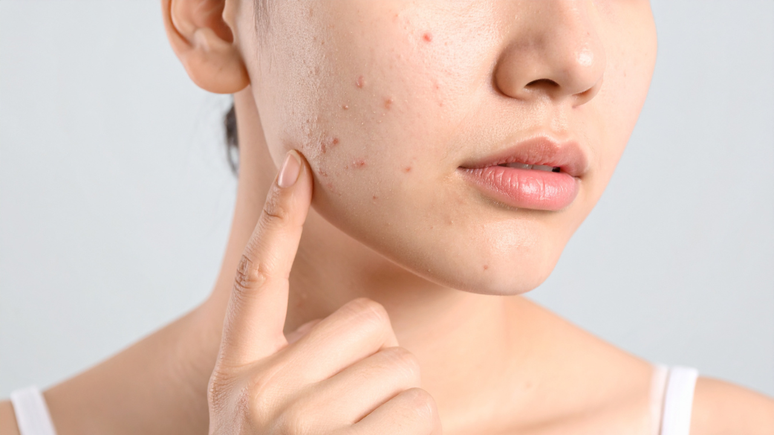According to dermatologists, acne is linked to both hormonal changes and harmful habits and hidden disorders.
In some periods, such as during adolescence or the menstrual cycle, the appearance of pimples is frequent, due to hormonal changes. The recurrence of acne, however, especially in certain areas of the face and body, can indicate everything from bad habits to health problems.
“Pimples are always symptoms. Where they appear is a clue to what is happening in your body or in your habits. Ignoring this is wasting time by treating only the surface, while the cause remains active,” explained the dermatologist Layana Vasconcelosin your profile on Instagram.
What do pimples on the body reveal?
THE T-zonewhich includes the forehead, nose and chin, is one of the regions most affected by inflamed lesions. This is because, in this area, there is a greater concentration of sebum-producing glands, which combine with dead cells and bacteria, creating pimples.
However, the use of cosmetics that are not suitable for your skin type, as well as caps and hats, tends to intensify acne, especially on the forehead and scalp. As regards the chin and jaw, as the specialist explains, the appearance of inflammation can be associated with health problems.
“When pimples repeatedly appear in these regions, it is usually linked to hormonal imbalances, such as polycystic ovaries, menstrual irregularity, or changes in testosterone,” he stated.
According to Vasconcelos, the presence of acne on the cheeks is also a signal that the body needs more attention, since it reveals that the intestine is not regulated. However, its origin could still be related to harmful habits, such as accumulated makeup or contaminated pillowcases and towels.
Pimples on the back, in turn, are linked to inadequate supplementation, heat or too tight clothing. Furthermore, hormonal disorders are responsible for these disorders, which are common during pregnancy and during periods in which testosterone levels fluctuate.
In both cases, therefore, the recommendation is to invest in cleaning the affected areas with warm water and soaps suitable for your skin type. Another tip is to change harmful practices and invest in a healthy diet, free of fat and ultra-processed foods. Experts also recommend that if recurring lesions appear, seek professional help to identify the root of the problem.
Check out this photo on Instagram
A post shared by Dr. Layana Vasconcelos | Aesthetic Dermatology (@dralayana)
Source: Terra
Ben Stock is a lifestyle journalist and author at Gossipify. He writes about topics such as health, wellness, travel, food and home decor. He provides practical advice and inspiration to improve well-being, keeps readers up to date with latest lifestyle news and trends, known for his engaging writing style, in-depth analysis and unique perspectives.







